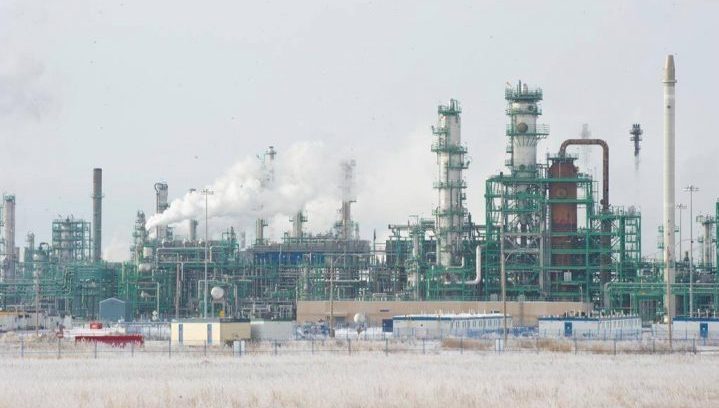The Co-op Refinery Complex is reducing production at its Regina plant amid the coronavirus pandemic.

For the last three months, CRC has been producing between 110,000 to 120,000 barrels per day, but as of Thursday, it lowered production to about 90,000 barrels per day.
CRC said the reduction is in response to low oil prices and lessened demand for gasoline as people continue to stay home.
“While we’re turning down the Refinery’s daily production, we want customers to know that we have planned for this. Over the past few months, we have taken steps to maximize the utilization of our storage capacity and supply chain network throughout Western Canada,” Gil Le Dressay, CRC’s vice-president of refinery operations, said in a statement.
“This will ensure the market has the product in place to meet demand. It’s important our agricultural producers know that we plan for their seeding and harvest needs every year and that their product is in place and ready for them this spring.”
CRC said fuel inventories are full and ready when it’s time to meet marketplace demands and it’s ready to increase production once the demand for gas and diesel increases.

Get daily National news
Most of CRC’s annual turnaround work planned for 2020 is also being moved to 2021.
“While we typically reduce production in April for turnaround, we see this specific reduction plan lasting longer. It could conceivably be months before we return to our typical production levels,” Le Dressay said.
“Regardless of our production levels, our focus is, and will continue to be, on the safe operation of the Refinery. This will ensure our critical infrastructure is available to support the province and protect our people during this challenging time.”
CRC continues to operate its plant with replacement workers as its labour dispute with its employees, represented by Unifor Local 594, continues.
Employees were locked out of the refinery on Dec. 5, 2019.
A division of Unifor represents some Global News employees.
Questions about COVID-19? Here are some things you need to know:
Health officials caution against all international travel. Returning travellers are legally obligated to self-isolate for 14 days, beginning March 26, in case they develop symptoms and to prevent spreading the virus to others. Some provinces and territories have also implemented additional recommendations or enforcement measures to ensure those returning to the area self-isolate.
Symptoms can include fever, cough and difficulty breathing — very similar to a cold or flu. Some people can develop a more severe illness. People most at risk of this include older adults and people with severe chronic medical conditions like heart, lung or kidney disease. If you develop symptoms, contact public health authorities.
To prevent the virus from spreading, experts recommend frequent handwashing and coughing into your sleeve. They also recommend minimizing contact with others, staying home as much as possible and maintaining a distance of two metres from other people if you go out.
For full COVID-19 coverage from Global News, click here.













Comments
Want to discuss? Please read our Commenting Policy first.